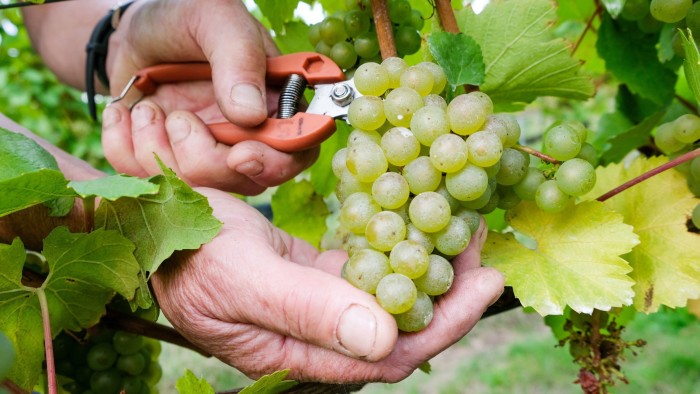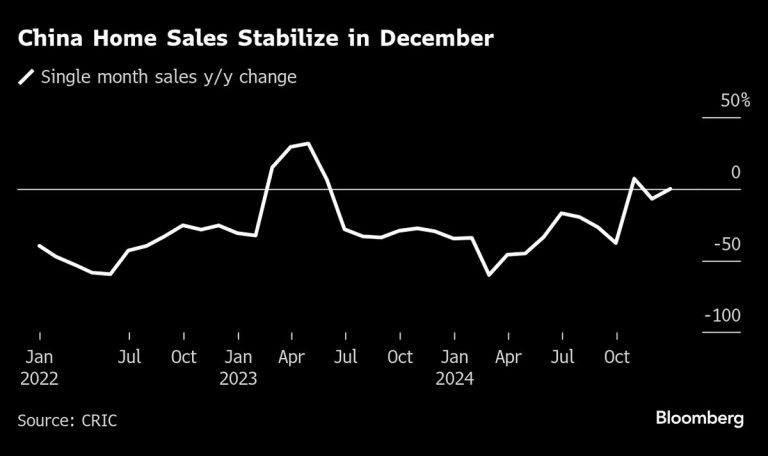Unlock the Editor’s Digest for free
Roula Khalaf, Editor of the FT, selects her favourite stories in this weekly newsletter.
When Chapel Down announced in October that it had cancelled its plans for a sale, disappointment rippled through the English wine industry.
Optimism about the sector’s prospects bubbled over last year following a bumper harvest and an uptick in international acquisitions of estates. But as wine estates struggle to attract buyers and reckon with a poor 2024 harvest and a stinging UK Budget, the sparkle has faded.
“It’s a shame because it would have been a very good reference for benchmark valuations,” Ed Mansel Lewis, head of viticulture at property consultants Knight Frank, said of a Chapel Down sale. “There hasn’t been that litmus test yet, which valuers can point to.”
Would-be wine investors are heading into 2025 more cautiously than in previous years, land agents told the FT.
Many of the country’s prominent vineyards are either lossmaking or shouldering hefty debts, and are now in search of investors in order to stay afloat or of buyers willing to take on the capital expenditure required to scale up production.
Besides Chapel Down, two more of England’s largest, pioneering wine estates, Gusbourne and Rathfinny, are looking for buyers or partners, with many more privately up for sale, according to wine estate agents.

Agents said that estate founders who are now established in the sector had reached a point in their lives where they either needed to commit to a new investment cycle, sell up or pass the business on to a relative.
“It’s not a question of throwing in the towel, it’s a question of passing on the baton. If you’re going to commit further investment you need to be able to commit the time. In the end it’s an agricultural process,” said Chris Spofforth, farms and estates director at Savills.
Gusbourne’s majority shareholder Lord Ashcroft said in July this year that he was considering selling his stake, and Rathfinny said it was looking for a partner or buyer in April last year. No buyer has yet emerged publicly for either estate.
“When buying an existing business, buyers do scrutinise the economics more than they used to, so that can take longer,” said Spofforth.
“In certain parts of the sector the economics have become much more difficult and the Budget hasn’t helped that.”
Agents said the higher minimum wage and national insurance contributions had hit the viticulture business in the same way they had many sectors in the UK. Winemaking was particularly exposed due to its reliance on lower-paid staff, particularly for vineyard operations, said Nick Watson, head of viticulture at Strutt & Parker.
“There has been a lot of uncertainty,” he said, pointing to high interest rates and a rebound in inflation. “No market is immune from those macro pressures, so we shouldn’t be surprised that viticulture isn’t exempt from that.”

Hattingley Valley, a renowned sparkling wine producer in Hampshire, made a loss of almost £8mn in the year to September 2023, according to accounts filed at Companies House. Meanwhile its payments to creditors due in more than a year amount to £5.6mn, up from £4.6mn the year before.
Another award winning estate, Ridgeview in Sussex, made a loss of £1.5mn in the year to December 2023.
“There are businesses within the industry who took on debt when interest rates were much lower and are now struggling to service the interest,” said Mansel Lewis.
“I think we will probably see consolidation where the fittest businesses with least debt and good routes to market start to expand and buy those that are struggling to achieve economies of scale.”
The challenges have been compounded by the poor 2024 harvest.
According to trade group WineGB, the 2024 vintage is expected to produce 6mn to 7mn bottles, which constitutes a 30-40 per cent reduction on the 10-year average. In its 2024 harvest survey, 70 per cent of respondents said they had lost yield as a result of disease in the vines.

Agents said that despite the difficulties, they were still seeing a lot of interest, from existing players looking to expand, from new entrants, and from foreign investors.
Whereas earlier entrants wanted to plant an estate from scratch, buyers now preferred an “oven-ready” business with an existing brand and infrastructure, said Savills’s Spofforth.
The agents said that consolidation was likely to pick up pace within the domestic market, with larger English producers buying up struggling players.
“It will inevitably go through a cycle of consolidation,” said Watson at Strutt & Parker, adding, “but it’s not going to happen overnight.”

























+ There are no comments
Add yours